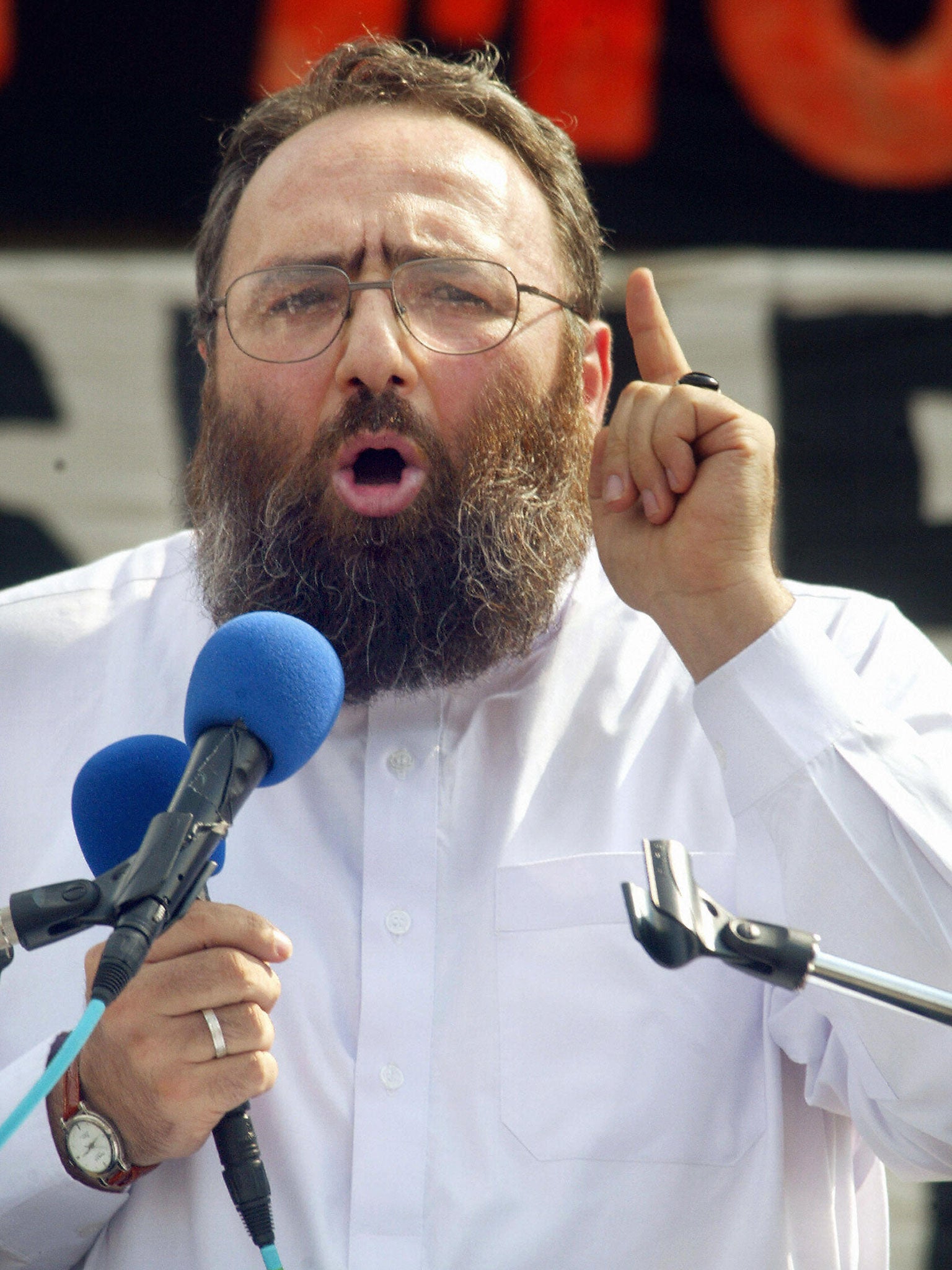Banned radical cleric Sheikh Omar Bakri Mohamed arrested in Lebanon over ‘links to terrorism’
Syrian-born preacher – who left Britain in 2005 – detained in country hit by sectarian violence

Your support helps us to tell the story
From reproductive rights to climate change to Big Tech, The Independent is on the ground when the story is developing. Whether it's investigating the financials of Elon Musk's pro-Trump PAC or producing our latest documentary, 'The A Word', which shines a light on the American women fighting for reproductive rights, we know how important it is to parse out the facts from the messaging.
At such a critical moment in US history, we need reporters on the ground. Your donation allows us to keep sending journalists to speak to both sides of the story.
The Independent is trusted by Americans across the entire political spectrum. And unlike many other quality news outlets, we choose not to lock Americans out of our reporting and analysis with paywalls. We believe quality journalism should be available to everyone, paid for by those who can afford it.
Your support makes all the difference.A firebrand Islamist preacher who was banned from the UK after praising al-Qa’ida attacks on the West has been arrested in Lebanon for allegedly supporting terrorism.
Sheikh Omar Bakri Mohamed, a Syrian-born preacher who moved to the UK in the 1980s, became infamous in Britain after reportedly describing the 9/11 bombers as “the Magnificent 19” and the London 7/7 bombers as the “Fantastic Four”.
He also founded the since-banned Islamist organisation Al-Muhajiroun and helped convert Michael Adebowale, who went on to take part in the murder of British soldier Lee Rigby in Woolwich, south-east London, in May 2013.
Lebanon’s Interior Minister, Nouhad Machnouk, told a press conference yesterday that Mr Bakri Mohamed had been arrested in the early hours of the morning in the city of Aley, in the mountains southeast of Beirut.
“This person has contributed in every aspect in supporting terrorism,” he alleged.
Lebanon has been embroiled in sectarian violence between Sunni and Shia Muslims, fuelled by the civil war in neighbouring Syria. Mr Bakri Mohamed, a Sunni, has praised al-Qa’ida in recent speeches, according to the Reuters news agency.
Until last month, he was living in the coastal city of Tripoli, where dozens of people have been killed in clashes between Sunnis and Alawites, an offshoot of Shia Islam, to which Syrian President Bashar al-Assad belongs.
However, he fled the city after security forces raided houses of people suspected to be involved in the fighting.
In 2005, the cleric left Britain to go to Lebanon, saying he planned to spend several weeks visiting his mother, amid suggestions that he could be tried for treason. It later became clear there had been no prospect of a treason charge. However, before he could return, the then home secretary, Charles Clarke, issued an order revoking his “indefinite leave to remain [in the UK]... on the grounds that his presence is not conducive to the public good”.
He was previously sentenced to life in prison in Lebanon in 2010, following a terrorism conviction, but was released on bail after witnesses recanted their testimony.
Anjem Choudary, Mr Bakri Mohamed’s spokesman and a former leader of Al-Muhajiroun, called yesterday for his release in a statement that condemned the “oppressive Lebanese regime”.
“Sheikh Omar Bakri Mohamad has had many lies attributed to him by the Lebanese authority in order to affect his arrest on behalf of the Syrian regime who are keen to stop any opposition to their slaughter of Muslims,” he said.
“Claims that he is representing al-Qa’ida or that he is instigating any unrest are completely unfounded.”
Mr Choudary was accused in November of running a network of groups that was the “single biggest gateway to terrorism in recent British history” in a report. Mr Choudary dismissed the report as “fanciful”.
The report stressed there was no evidence Mr Choudary had directly instigated any terror plot.
Join our commenting forum
Join thought-provoking conversations, follow other Independent readers and see their replies
Comments